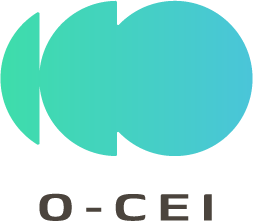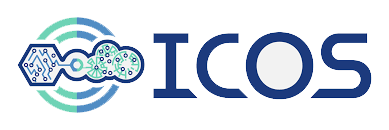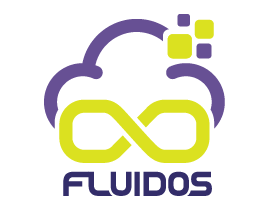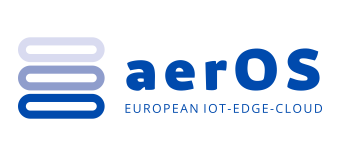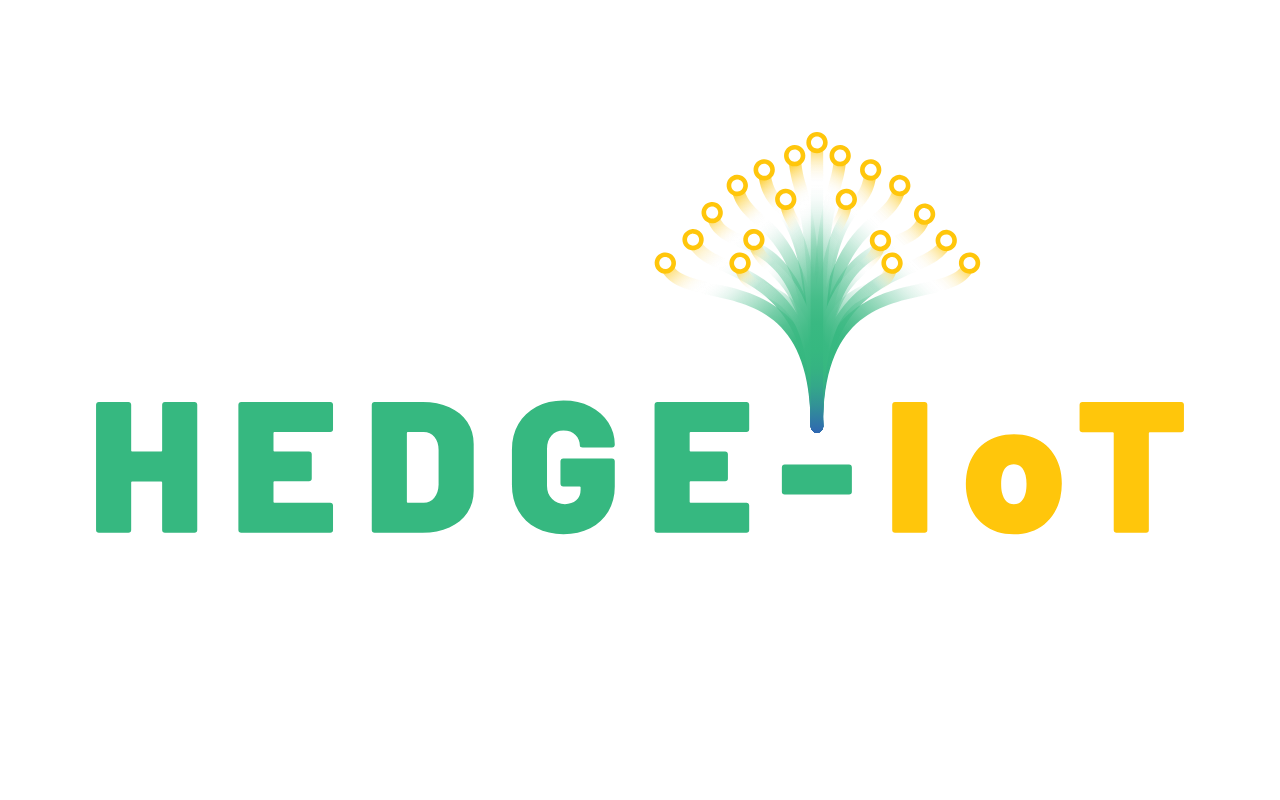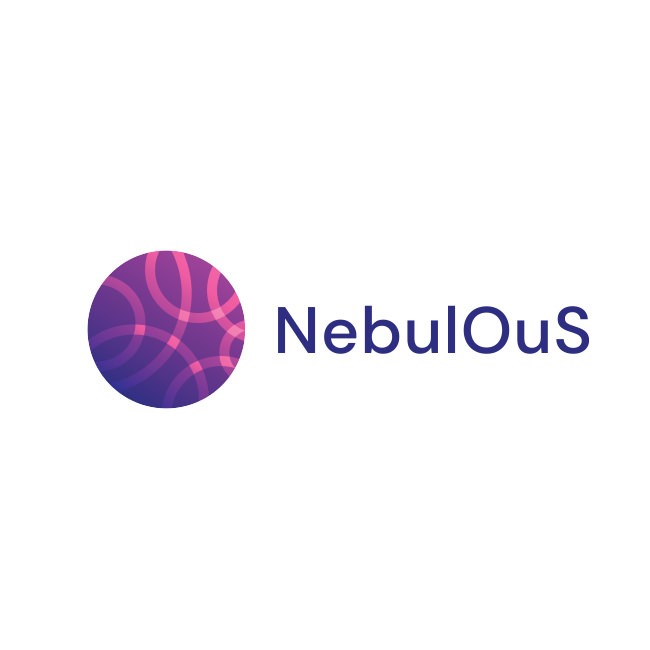Projects Open Calls
This page presents all the open, forthcoming and closed open calls managed by projects in our community
Open & Forthcoming Calls
Closed Calls
O-CEI First Open Call
Open Date: 19 September 2025
Close Date: 20 November 2025 (17:00 CET)
About the open call
This first Open Call is your chance to directly contribute to this groundbreaking work. We are looking for Upscaling Projects – innovative tech providers (SMEs and Startups) who will develop and test their edge solutions in the form of CEI utilities (apps and services). These solutions will tackle real-world challenges identified within our existing large-scale pilots, bringing your technology from concept to impactful application.
This is more than just a grant; it’s an invitation to:
- Validate your technology: Test and refine your solutions in live, operational environments.
- Solve real-world problems: Address tangible challenges with significant societal and economic impact.
- Collaborate & grow: Work alongside leading experts and pilot partners across Europe.
Funding Available
O-CEI Open Call 1 will distribute €100,000 for financial support to each organisations who will also receive tailored technical and business support
Eligible organisations
SMEs and start-ups
Average duration
7-month support programme
Number of grants awarded
24
Open Call Coordinator
Check out: https://o-cei.eu/open-calls/
Description
As a Horizon Europe Innovation Action program, O-CEI will support Europe’s transition to a more sustainable and resilient digital infrastructure, paving the way for cleaner energy and more efficient use of resources.
Main goal
O-CEI aims to create an open CEI platform with a strong focus on interoperability, security, and reliability, making it easier for different sectors to collaborate and share data in real-time. This will enable faster, more accurate predictions in energy flexibility, helping industries to become more adaptable to energy demands. By developing breakthrough technologies and deploying large-scale pilots,
Main outputs
The O-CEI pilots are designed to drive innovation and demonstrate the practical applications of key sectors. By focusing on diverse domains, the initiative seeks to showcase scalable solutions that align with energy flexibility goals while addressing sector-specific challenges. Each pilot brings together a collaborative network of industry leaders, SMEs, research and technology organizations (RTOs), and midcaps to ensure impactful results and cross-sectoral synergies.
These collaborative efforts aim to push the boundaries of CEI implementation and foster innovation across diverse sectors
Link to open call
Website
nephele Second Open Call
Open Date: 19 Aug 2024
Close Date: 20 Oct 2024 (09:00 CEST)
Type of actions funded
Validation of the proposed architectural approach of the NEPHELE platform and synergetic meta-orchestration framework implementation, based on the development of intelligent orchestration mechanisms and a set of distributed applications (incl. VOs, cVOs). Proposals must address one of the two types of projects listed below:
- 1st project type: Development and deployment of a distributed application for the computing continuum
- 2nd project type: Development, integration and evaluation of an intelligent orchestration mechanism for the NEPHELE Synergetic Meta-Orchestrator.
Average Value
EUR 110K
Eligible organisations
Industrial SMEs/Mid-caps.
Average duration
6 months for the implementation
Number of grants awarded
8
Open Call Coordinator
- Diana Järve, FundingBox
- Anastasios Zafeiropoulos, National Technical University of Athens
- Symeon Papavassiliou, National Technical University of Athens
Should you have any questions on the open calls,
please join this Q&A space
Description
NEPHELE enables the efficient, reliable and secure end-to-end orchestration of hyper-distributed applications over programmable infrastructure that is spanning across the compute continuum, removing existing openness and interoperability barriers in the convergence of IoT technologies against cloud and edge computing orchestration platforms
Main goal
Design and build a virtual object software stack that will tackle IoT interoperability and convergence challenges in the compute continuum and develop synergetic orchestration mechanisms that can manage distributed applications in the continuum.
Main outputs
- Virtual Object software stack for virtualization, openness and interoperability of IoT devices
- A synergetic meta-orchestration framework for managing the coordination between cloud and edge computing orchestration platforms
Link to open call
Website
ICOS Second Open Call
Open Date: 10th July 2024
Close Date: 30th Sept 2024 (17:00 CEST)
Type of actions funded
Develop & test applications using the ICOS framework
Average Value
EUR 60k
Eligible organisations
SMEs and mid-caps Consortium-type applicants (1 tech provider & 1 end-user)
Average duration
6 months
Number of grants awarded
15
Open Call Coordinator
- Elena Japundžić, FundingBox
- Francesco D’Andria, Atos
Should you have any questions on the open calls,
please join this Q&A space
Description
ICOS aims to design, develop, and validate a meta-operating system by addressing the challenges of device volatility and heterogeneity, continuum infrastructure virtualisation and diverse network connectivity, optimised and scalable service execution and performance, as well as resource consumptions and costs.
Main goal
In order to achieve its goals ICOS project is looking for: ICOS uptake projects (2nd Open Call): technology providers (SME/midcap) developing services/ products in the sectors of the ICOS PILOT use cases and the use cases proposed by the projects from the 1st Open Call. The 2nd Open Call winners will onboard their applications and services to the ICOS system as well as test the ICOS functionalities and performance to improve the ICOS final product.
Main outputs
- MetaOS ICOS , – in a data-driven system built upon the principles of openness, adaptability, and data sharing, which consists of three main layers and two modules:
- Meta-Kernel
- Security layer
- ICOS Shell
- Data Management
Link to open call
Website
FLUIDOS Second Open Call
Open Date: July 2024
Close Date: 4 Oct 2024
Type of actions funded
The FLUIDOS project is now accepting applications for financial support to develop new Use Cases of the FLUIDOS system. The Use Case grant (UCG) offers funding to individual entities or small consortia (up to 3 partners) to test and validate the FLUIDOS architecture and software by incorporating their own additional software on top of the FLUIDOS system, and exploring new sectors beyond the traditional application domains.
Average Value
EUR 120k
Eligible organisations
FLUIDOS UCG will be open to both individual
entities (researchers, developers, SMEs, start-
ups, large enterprises, innovators, or research
institutions) and small consortia of 2-3
entities.
Average duration
8 months
Number of grants awarded
5
Description
The IT landscape has evolved into a world of hyperconnectivity, where devices and information systems communicate and exchange data on numerous applications. FLUIDOS will leverage the enormous, unused processing capacity at the edge, scattered across heterogeneous edge devices that struggle to integrate with each other and to form a seamless computing continuum coherently.
Main goal
To test and validate FLUIDOS architecture and software by incorporating their own additional software on top of the FLUIDOS system and exploring new sectors beyond the traditional application domains.
Main outputs
- Open and modular meta-Operating System (mOS)
- Transparent IoT-to-Edge-to-Cloud continuum
- On-device Intelligence to enable AIoT (inter-)acting as self-aware, (semi-) autonomous entities
- Intent-based DevZeroOps Platform as a Service with tools and plugin mechanisms
- Massive AIoT applications and high penetration
- Federated meta Network Cluster Controller
- Meta-Orchestrator
Link to open call
Website
aerOS Second Open Call
Open Date: 25 July 2024
Close Date: 30 Sept 2024 (17:00 CET)
Type of actions funded
Small projects that validate aerOS architecture and focus in one of aerOS use cases
Average Value
EUR 60k Fixed value
Eligible organisations
SMEs, RTOs and Academia, Individuals, NO large companies allowed
Average duration
Fixed duration: 8 months
Number of grants awarded
8
Open Call Coordinator
Description
aerOS aims to establish a common meta Operating System that follows a collaborative IoT-Edge–Cloud architecture supporting flexible deployments (e.g., federated or hierarchical), enabling the distribution of intelligence and computation – including AI, ML, and Big Data analytics – to achieve an optimal solution while satisfying the given constraints.
Main goal
Design and build a virtualised, platform-agnostic, zero-touch orchestration (of resources & services) Meta Operating System for the IoT edge-cloud continuum.
Main outputs
- Virtualised and platform-agnostic Meta Operating System
- Methodology, standardisation, and protocols usable across the continuum for legacy and novel technologies
- Data autonomy strategy for the CEI continuum
- Infrastructural services and features for cybersecurity, trustworthiness and manageability
- Open APIs
Link to open call
Website
HEDGE-IoT Open Call for SMEs and Innovators
Open Date: 22 July 2025
Close Date: 24 Oct 2025 (17:00 CET)
About the open call
HEDGE-IoT Open Call 1 will fund up to 12 successful applications to develop data-driven energy services. The Open Call will foster innovation through a cascade-funding mechanism.
By participating, SMEs and innovators will:
- Leverage HEDGE-IoT’s distributed digital solutions.
- Prove the interoperability and scalability of their solutions.
- Contribute to advancing energy consumer services and the EU’s energy transition.
Funding Available
HEDGE-IoT Open Call 1 will distribute a total of €700,000 for financial support, with a maximum funding of €60,000 per third party.
Eligible organisations
SMEs and start-ups
Average duration
6 months for the implementation
Number of grants awarded
12
Open Call Coordinator
Abdellah El H’Jeouej Boutgoura: abdellah@bable-smartcities.eu
Description
HEDGE-IoT aims to lead the charge by deploying cutting-edge IoT assets and advanced AI/ML tools across energy systems, enhancing resilience and unlocking untapped flexibility potential.
Main goal
The primary goal of HEDGE-IoT is to deploy an innovative Digital Framework that enhances the resilience and flexibility of energy systems by deploying IoT assets across different levels, adding intelligence to the edge and cloud layers through advanced AI/ML tools, and bridging the cloud/edge continuum with federated applications. This framework aims to upgrade the renewable energy source (RES) hosting capacity, create new market opportunities, promote IoT standardisation, and facilitate the integration of RES into the energy ecosystem, ultimately driving sustainability and inclusivity while fostering scalability and replicability through collaboration with stakeholders and SMEs
Main outputs
- 6 pilots: The HEDGE-IoT Framework will be implemented, showcased and validated in a set of 6 diverse Large-Scale field Demonstrators in 6 European countries, featuring versatile geographic, climatic, regulatory and social conditions
- 2 Open Calls: HEDGE-IoT will allocate 1.700.000 EUR which will fund up to 30 Open Call projects offering new data-driven services and functionalities complementing the HEDGE-IoT Framework.
Link to open call
Website
ICOS First Open Call
Open Date: Aug 2023
Close Date: 17 Nov 2023
Type of actions funded
Develop & test applications using the ICOS framework
Average Value
EUR 200k
Eligible organisations
SMEs and mid-caps Consortium-type applicants (1 tech provider & 1 end-user)
Average duration
12 months
Number of grants awarded
5
Open Call Coordinator
- Elena Japundžić, FundingBox
- Francesco D’Andria, Atos
Should you have any questions on the open calls,
please join this Q&A space
Description
ICOS aims to design, develop, and validate a meta-operating system by addressing the challenges of device volatility and heterogeneity, continuum infrastructure virtualisation and diverse network connectivity, optimised and scalable service execution and performance, as well as resource consumptions and costs.
Main goal
- Design of an intelligent meta OS for the continuum
- Exploiting novel intelligent data and resource utilization methods
- Enforce trustworthy yet open operation
- Demonstrate the project outcomes in key relevant scenarios
- Building an open innovation environment and fostering the creation of new applications in the continuum
- Reduction of integration costs and effective mitigation of cloud provider lock-in effects
Main outputs
- MetaOS ICOS , – in a data-driven system built upon the principles of openness, adaptability, and data sharing, which consists of three main layers and two modules:
- Meta-Kernel
- Security layer
- ICOS Shell
- Data Management
Link to open call
Coming soon
Website
NEMO First Open Call
Open Date: Sep 2023
Close Date: Nov 2023
Type of actions funded
- NEMO meta-architecture extensions
- Software components/plugins not covered by the current NEMO implementation plan
- New network or service/resources metering/automated control components
- Porting NEMO on new, highly heterogeneous IoT devices.
Average Value
EUR 150k
Eligible organisations
SMEs active in edge computing, edge and/or cloud native software development, operating systems, IoT/5G networks and IoT manufacturing entities
Average duration
18 months
Number of grants awarded
6
Open Call Coordinator
Description
NEMO is an open source, modular and cybersecure meta-operating system in the AIoT-edge-cloud continuum. It introduces novel concepts, methods, leverages on existing technologies and tools, testing and engagement campaigns.
NEMO will bring intelligence closer to the data and make AI-as-a-Service integral part of network self-organisation and micro-services execution orchestration.
Main goal
Develop a Meta OS that will manage the resources, storage computing, data and networks across continuum in an open and reusable manner.
Close the digital gap by using smart tech applications and reinforce EU CEI ecosystem competitiveness.
Main outputs
- Open and modular meta-Operating System (mOS)
- Transparent IoT-to-Edge-to-Cloud continuum
- On-device Intelligence to enable AIoT (inter-)acting as self-aware, (semi-) autonomous entities
- Intent-based DevZeroOps Platform as a Service with tools and plugin mechanisms
- Massive AIoT applications and high penetration
- Federated meta Network Cluster Controller
- Meta-Orchestrator
Link to open call
Website
Nephele First Open Call
Open Date: Sep 2023
Close Date: Nov 2023
Type of actions funded
- NEMO meta-architecture extensions
- Software components/plugins not covered by the current NEMO implementation plan
- New network or service/resources metering/automated control components
- Porting NEMO on new, highly heterogeneous IoT devices.
Average Value
EUR 150k
Eligible organisations
SMEs active in edge computing, edge and/or cloud native software development, operating systems, IoT/5G networks and IoT manufacturing entities
Average duration
18 months
Number of grants awarded
6
Open Call Coordinator
Description
NEMO is an open source, modular and cybersecure meta-operating system in the AIoT-edge-cloud continuum. It introduces novel concepts, methods, leverages on existing technologies and tools, testing and engagement campaigns.
NEMO will bring intelligence closer to the data and make AI-as-a-Service integral part of network self-organisation and micro-services execution orchestration.
Main goal
Develop a Meta OS that will manage the resources, storage computing, data and networks across continuum in an open and reusable manner.
Close the digital gap by using smart tech applications and reinforce EU CEI ecosystem competitiveness.
Main outputs
- Open and modular meta-Operating System (mOS)
- Transparent IoT-to-Edge-to-Cloud continuum
- On-device Intelligence to enable AIoT (inter-)acting as self-aware, (semi-) autonomous entities
- Intent-based DevZeroOps Platform as a Service with tools and plugin mechanisms
- Massive AIoT applications and high penetration
- Federated meta Network Cluster Controller
- Meta-Orchestrator
Link to open call
Website
aerOS First Open Call
Open Date: Oct 2023
Close Date: Jan 2024
Type of actions funded
Small projects that validate aerOS architecture and focus in one of aerOS use cases
Average Value
EUR 60k Fixed value
Eligible organisations
SMEs, RTOs and Academia, Individuals, NO large companies allowed
Average duration
Max. duration: 9 months
Number of grants awarded
7
Open Call Coordinator
Description
aerOS aims to establish a common meta Operating System that follows a collaborative IoT-Edge–Cloud architecture supporting flexible deployments (e.g., federated or hierarchical), enabling the distribution of intelligence and computation – including AI, ML, and Big Data analytics – to achieve an optimal solution while satisfying the given constraints.
Main goal
Design and build a virtualised, platform-agnostic, zero-touch orchestration (of resources & services) Meta Operating System for the IoT edge-cloud continuum.
Main outputs
- Virtualised and platform-agnostic Meta Operating System
- Methodology, standardisation, and protocols usable across the continuum for legacy and novel technologies
- Data autonomy strategy for the CEI continuum
- Infrastructural services and features for cybersecurity, trustworthiness and manageability
- Open APIs
Link to open call
Website
NebulOuS First Open Call
Open Date: 14 Feb 2024
Close Date: 17 Mar 2024
Type of actions funded
Validation of basic aspects of the platform
(An initial list of assets that will be available for the launching of the first call)
Average Value
up to EUR 150k per project
Eligible organisations
- Micro, small and medium-sized enterprises working on the IoT, Edge, Cloud or and other related technologies
- Research institutions, research infrastructures, non-profit organisations and charitable (scientific) foundations and public research centres, when supporting organisations of category 1 in a collaborative 3rd party project
Average duration
7 months
Number of grants awarded
4
Open Call Coordinator
Should you have any questions on the open calls,
please join this Q&A space
Description
NebulOuS will introduce an appropriate meta-operating system that encompasses brokerage capabilities across the cloud computing continuum, advanced methods to enable secure and optimal application provisioning, resource adaptation and reconfiguration. It will enable the emergence of ad-hoc fog brokerage ecosystems that exploit IoT/edge and fog nodes, in parallel to multi-cloud resources to cope with the requirements of hyper distributed applications.
Main goal
Develop a Meta Operating System and a platform that enables transient fog brokerage ecosystems that can seamlessly exploit edge and fog nodes with multi-cloud resources while coping with low-latency applications.
Main outputs
- Semantic models for fog brokerage
- MCDM cloud & fog service brokerage
- Optimised application life cycle management
- Autonomous and secure reconfiguration support
- Distributed EMS with automatic anomaly detection
- Full-life cycle support for edge and cloud resources to enable hosting nodes across and outside of organisational units

